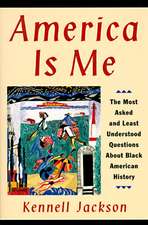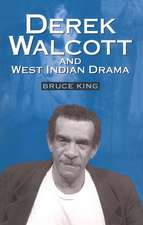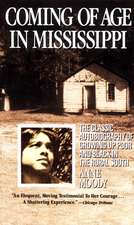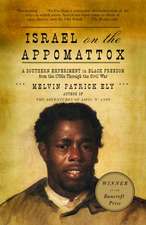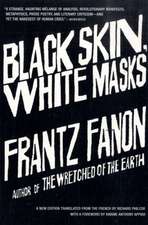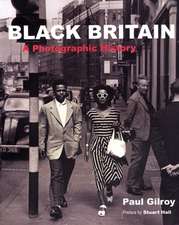African Americans and Gentrification in Washington, D.C.: Race, Class and Social Justice in the Nation’s Capital: Urban Anthropology
Autor Sabiyha Princeen Limba Engleză Hardback – 2 ian 2014
Preț: 765.40 lei
Preț vechi: 1028.12 lei
-26% Nou
Puncte Express: 1148
Preț estimativ în valută:
146.47€ • 152.06$ • 122.14£
146.47€ • 152.06$ • 122.14£
Carte tipărită la comandă
Livrare economică 22 martie-05 aprilie
Preluare comenzi: 021 569.72.76
Specificații
ISBN-13: 9781409446125
ISBN-10: 1409446123
Pagini: 194
Dimensiuni: 156 x 234 mm
Greutate: 0.52 kg
Ediția:New.
Editura: Taylor & Francis
Colecția Routledge
Seria Urban Anthropology
Locul publicării:Oxford, United Kingdom
ISBN-10: 1409446123
Pagini: 194
Dimensiuni: 156 x 234 mm
Greutate: 0.52 kg
Ediția:New.
Editura: Taylor & Francis
Colecția Routledge
Seria Urban Anthropology
Locul publicării:Oxford, United Kingdom
Public țintă
Academic, Postgraduate, and Undergraduate AdvancedNotă biografică
Sabiyha Prince is a cultural anthropologist and independent scholar who resides in the Baltimore-Washington metropolitan area.
Recenzii
'While Prince's findings are situated in anthropological theory, her work is accessible to a broader audience, and the oral history interviews she utilized provide compelling examples of the impact of gentrification on the lives of longtime African American residents of the city. Of interest to scholars and students of urban studies, urban planning, and African American studies, as well as community members and practitioners involved in gentrification-related issues in cities across the US. ... Highly recommended.' Choice ’An important and much anticipated study that places race at the center of a rigorous and sustained analysis of gentrification. As skillful in exposing the neoliberal policies at the root of gentrification as it is in appreciating the look and feel of gentrification as lived by residents. An eye-opener and must-read work.’ Arlene Davila, New York University, USA ’African Americans and Gentrification in Washington, D.C. represents a brand of rigorous and ambitious scholarship on urban culture that should serve as a valuable model for other scholars attempting to work across the boundaries of traditional disciplinary formations. Prince brings a meticulous eye and deft analytical focus to the issue of gentrification in contemporary black America. I can’t wait to use this book in class.’ John L. Jackson, Jr., University of Pennsylvania, USA 'Using qualitative data, including extensive interview material and ethnographic research, to explore the experiences and ideas of African Americans as they confront and construct gentrification, this book aims to contextualize Black Washingtonians’ perspectives on belonging and attachment during a marked period of urban restructuring and demographic change in the US capital. This book is particularly valuable for those studying middle-class urban renaissances in other places and eras ...' LSE Review of Books 'African Americans and Gentrification in Washington DC provides a broad analysis of this com
Cuprins
Introduction; Chapter 1 Gentrification, Race, and Neoliberalism in Washington, D.C.; Chapter 2 Race and Class Hierarchies in D.C. History; Chapter 3 Arrival, Belonging, Difference: Exploring the Oral Histories of Elder African Americans; Chapter 4 Race, Place, Representation, and Attachment; Chapter 5 Race, Class, and the Individual Dynamics of Gentrification; Chapter 6 Race, Class, and the Dynamics of Collective Responses to Gentrification; Chapter 7 Furthering an Anthropology of Gentrification in D.C.;
Descriere
Using qualitative data, including extensive interview material and ethnographic research, to explore the experiences and ideas of African Americans as they confront and construct gentrification, this book contextualizes Black Washingtonians’ perspectives on belonging and attachment during a marked period of urban restructuring and demographic change in the nation’s capital. African Americans and Gentrification in Washington, D.C. sheds light on social hierarchies and standpoints unfolding over time to present a portrait of a heterogeneous African American population, wherein members define their identity and culture as informed by their knowledge of the impact of injustice on the urban landscape.










